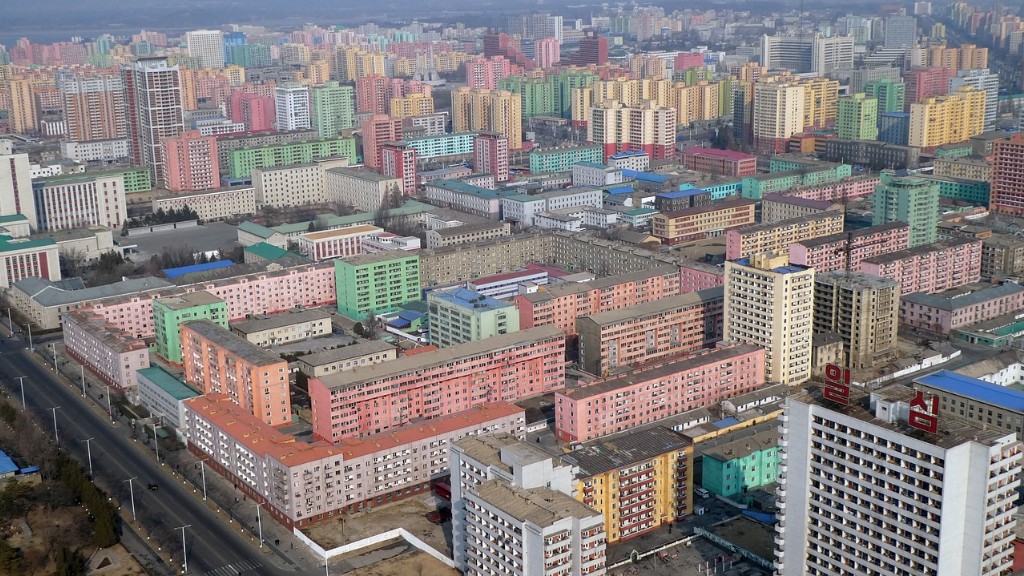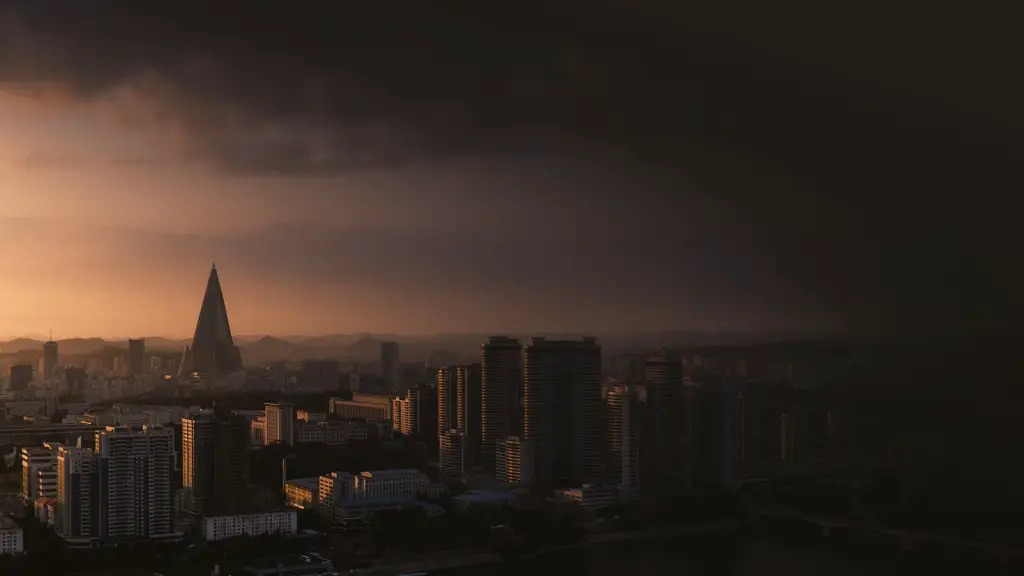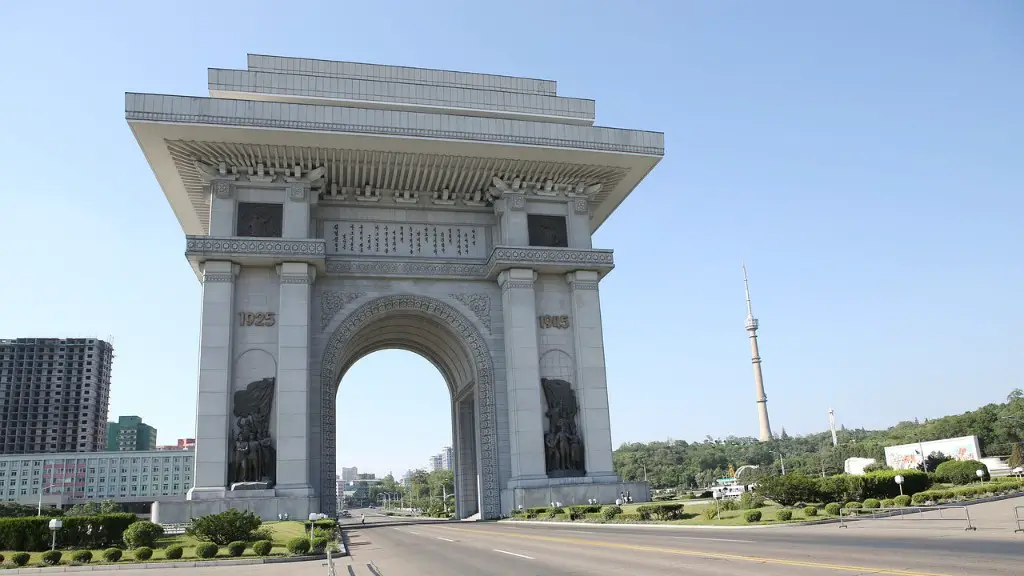Can North Korea Strike Us?
The fear of North Korea developing long range nuclear weapons and ballistic missiles capable of striking the United States has been ever-present since the hermit kingdom acquired nuclear weapons in 2006. North Korea’s entry into the nuclear club has raised regional tensions because of the unpredictable and often provocative behavior of the North Korean leadership.
The United States intelligence agencies have always been of the opinion that North Korea’s nuclear weapons are mainly designed to deter or at least threaten the US and its allies in the region. Although, North Korea does not have a track record of using nuclear weapons, it does possess an arsenal of other missiles and conventional weapons which can cause immense destruction.
North Korea currently has a variety of long-range ballistic missiles including their Musadan Intermediate-range ballistic missile (IRBM). This ballistic missile has a range of up to 3360 km, sufficient enough to reach US soil. Additionally, there are reports that North Korea has been experimenting with submarine launched ballistic missiles (SLBMs) which could potentially extend to ranges of up to 6000 km.
Aside from ballistic missiles, North Korea also has short-range missiles, which are primarily meant to target targets in South Korea and other neighbouring countries. North Korea also has a plethora of artillery systems which they could use to attack South Korea and other surrounding countries. These include conventional howitzers, rocket launchers, and simple mortar types.
Now, even if North Korea had the capability to strike the US with a nuclear armed ballistic missile, the question then arises, whether North Korea would really do so. Most experts agree that it is highly unlikely as North Korea is not suicidal. Their leaders have time and time again stated that they do not intend to use nuclear weapons first and that they mainly developed it for defence purposes.
Moreover, North Korea is aware that if they did use nuclear weapons, they would face the full wrath of the US and the international community. This is because of the presence of the US forces in both South Korea and Japan, who would be prepared for such an attack. The US also has a number of tactical nuclear weapons in the region which could be used as a retaliatory strike.
The military capabilities of North Korea should not be taken lightly. Despite there being little to no chance of North Korea attacking the US with a nuclear weapon, they do possess the capability to deploy other offensive weapon systems to cause destruction.
Projectiles
Apart from their weapons of mass destruction, North Korea also has a range of other weapons at their disposal, including projectiles. Though not as destructive as nuclear weapons and missiles, projectiles can still cause significant damage.
Projectiles are short duration payloads such as bombs and shells which are launched by North Korea’s artillery systems in the form of kinetic energy. They do not contain any explosives, but they are still incredibly dangerous. North Korea’s artillery has a range of up to 300 km, capable of reaching a significant portion of South Korea.
North Korea also has access to chemical weapons. They possess a stockpile of chemical agents such as sarin and VX, as well as a range of other toxic agents. The range of these weapons is believed to be much shorter than traditional land and naval weapons, though the exact range is unknown.
For the purpose of deterrence, North Korea has also deployed thousands of makeshift explosive devices into the demilitarized zone (DMZ) which borders North and South Korea. These devices are designed to detonate in the event of any aggression from the South Korean side. The purpose of these explosive devices is to quickly cause mass destruction and casualties in the event of a conflict with South Korea.
Cyber Warfare
North Korea is also believed to have active cyber warfare capabilities, along with a large cadre of highly trained computer operatives. North Korea is believed to have launched a number of cyberattacks against South Korea, targeting communication networks, financial systems, and even the nuclear power plant in Busan. North Korea has also targeted US corporations and government agencies with cyberattacks.
North Korea is believed to have used malware and other malicious software to infiltrate computer networks and extract sensitive information. North Korea is also believed to have conducted massive flooding and denial of service attacks against websites of US corporations and government agencies. North Korea is believed to be behind the highly sophisticated WannaCry cyberattack which crippled computer networks across the world in 2017.
North Korea has also been accused of launching ransomware attacks against US entities. Ransomware is a type of malware which encrypts data until a ransom is paid. North Korea is believed to have used this tactic to extract money from US entities, as well as other countries.
Apart from its weapons of destruction, North Korea also has the capability to carry out cyber warfare. These cyberattacks can be conducted without the need for any physical presence, and have the potential to cause immense destruction.
Countermeasures
The United States has implemented a range of measures to counter the threat of North Korean aggression. These measures include the deployment of an extensive missile-defense system, known as the Terminal High-Altitude Area Defense (THAAD). This system is designed to detect and intercept incoming ballistic missiles.
The US also has strategic assets in the region, such as naval assets and aircraft carriers, which are well equipped to respond to any North Korean aggression. Additionally, the US military has conducted numerous joint military exercises with its regional allies in order to enhance their joint capabilities to respond to any sort of threat.
The US also continuously engage in diplomatic efforts in order to engage and resolve the tensions with North Korea. The US is currently leading negotiations for denuclearization of the Korean Peninsula, with the hope of peacefully resolving the long-standing tensions.
The United States has taken active measures to prepare for a possible North Korean attack. These measures are designed to not only protect US citizens from any attack, but also to bring about a peaceful resolution to the conflict.
International Relations
US-North Korea relations have been strained for decades, due to the numerous issues that the two countries have not been able to resolve. Apart from the nuclear weapons and missile threat, North Korea has also been sponsoring several forms of state-sponsored terrorism, including assassinations, kidnappings and other human rights abuses.
The United States has unilaterally imposed several economic sanctions against North Korea in order to pressure them to curb their nuclear and missile program. These sanctions include cutting off North Korea’s access to the international financial system, and a comprehensive ban of all North Korean imports, exports and financial transactions.
The United Nations Security Council has also been involved in the security tensions in the Korean Peninsula. The UN has passed several resolutions imposing various sanctions against North Korea, including an oil embargo, travel bans and asset freezes on North Korean officials and entities.
Despite these punitive measures, North Korea has remained defiant, and the tensions between the two countries remain high. North Korea’s nuclear ambitions remain firmly in place, and the US and its allies on the Korean Peninsula continue to monitor the situation closely.
Conclusion
North Korea has a range of weapons at its disposal which could cause considerable destruction, if use in an act of aggression. Though unlikely, North Korea does possess the capability to deploy ballistic missiles and nuclear weapons which could reach US soil. The US and its allies have taken several measures to counter the threat from North Korea, in an attempt to bring about a peaceful resolution. International relations between the US and North Korea remain strained, but there is still hope for a peaceful resolution to the tensions.





